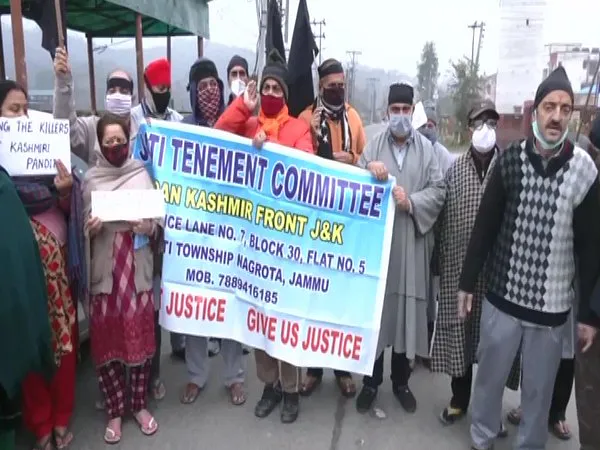The refugees of Pakistan-occupied Kashmir (PoK) settled in Jammu observed Black Day on Saturday and demanded to return the illegally occupied areas of Kashmir.
On October 22, 1947, Kabali tribals who were backed by the Pakistan Army had attacked Jammu and Kashmir and killed thousands of people.
Their attack on the citizens in the valley in 1947 forced many to leave their homes and take refuge at other safer places.
Since then, the PoK refugees who are settled in Jammu observe the day as ‘Black Day’ and remember the ones who lost their lives in the inhumane crisis.
Pakistan attacked the Union Territory just nine days after being carved out of India. It first dispatched armed irregulars and then regular troops to invade Kashmir. The campaign was led by the maverick Major General Akbar Khan who brazenly called the troops as ‘raiders’. The Pakistan Army code-named the Kashmir mission as ‘Operation Gulmarg’. The boastful book of Khan which was belatedly published in 1970, leaves little to argue or imagination about the nature and motive of the operation.
India observes October 22 as “Black Day”. It is done by India in purely legal terms just to tell the world that India had sent the troops only after Maharaja Hari Singh signed the Instrument of Accession. However, it had been factually established that the Maharajah had acted after touring Poonch and Owen Pattan in the Jammu region. The region fell on October 8 and 9, 1947.
In August 1947, when India became independent, Jammu and Kashmir, as one of the princely states were ruled by Maharaja Hari Singh. He did not make any decisions about joining India or Pakistan until the British left on August 15, 1947.
Pakistan started threatening Maharaja Hari Singh. As stated in writing, “the time has come for Maharaja of Kashmir that he must rake his choice and choose Pakistan. If Kashmir fails to join Pakistan, the worst possible problems will inevitably arise.”
Believing that Maharaja Hari Singh might pin India, Pakistan had already decided to take Jammu and Kashmir by force at the end of August 1947, the statement reads.
Before the launch of Operation Gulmarg, Pakistan had cut off supplies of essential supplies to the valley; an undertaking in which it succeeded extremely well as most of the state’s communication lines ran through that part of Punjab that is now part of Pakistan.
The chain of events began on October 22, 1947, with the induction of the ugly hand of terrorism in Jammu and Kashmir by Pakistan which has continued even to this day. The Hindus of Kashmir, who made up 100s of the Kashmir population before the advent of Islam some 700 years ago, have now been gradually reduced to a microscopic presence. After 1947, Hindus became the target of discrimination and constant threat from the Muslim majority, the statement reads.
The assassination of prominent Hindu leaders took place between September 1989 and eventually the genocide of 3,50,000 Hindus who fled their homes, beginning on January 19, 1990 and continuing thereafter, to save their honour and dignity and to escape mass murder by Islamic jihadists.
This horrific migration of a tiny population of Hindus created human rights issues of enormous magnitude. People were forced to abandon their property, lands, businesses and all forms of livelihood just because they were seen as obstacles in the expansionist movement of fundamental Jihad sponsored, aided, and assisted by Pakistan.
It is against this background that the invasion that began on 7 October 1947. It must be seen and regarded as the darkest days in the history of Jammu and Kashmir, the statement added.

